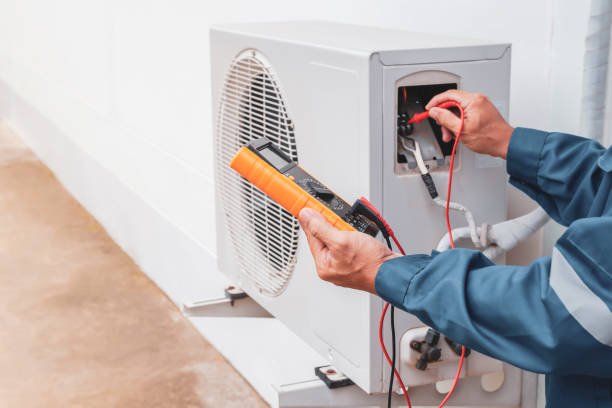Why Are HVAC Techs So Expensive?
Introduction
If you've ever called an HVAC technician to fix a problem, you may have been taken aback by the bill. It’s not uncommon for homeowners to wonder, "Why are HVAC techs so expensive?" The truth is, the costs associated with HVAC services reflect a variety of factors. From training and certification to equipment and overhead costs, the pricing structure can seem daunting at first glance. In this article, we’ll explore the intricate world of HVAC services, focusing on various aspects that contribute to these expenses.
Understanding the HVAC Industry
What Does HVAC Stand For?
HVAC stands for Heating, Ventilation, and Air Conditioning. This essential service ensures that our indoor environments remain comfortable regardless of outdoor conditions.
The Role of an HVAC Technician
An HVAC technician is responsible for installing, maintaining, and repairing heating and cooling systems. Their expertise ensures optimal performance and energy efficiency in your home or business.
The Importance of Quality Service
Quality service in the HVAC industry is paramount. Poorly installed or maintained systems can lead to inefficiency, increased energy bills, and even safety hazards.
Why Are HVAC Techs So Expensive?
When you receive a quote from an HVAC technician, it might leave you scratching your head. What exactly drives these costs up? Let’s break it down.
1. Extensive Training Requirements
Formal Education and Certification
HVAC technicians typically undergo extensive training which includes:
- Classroom instruction
- Hands-on experience
- Ongoing education to keep up with new technologies
Most states require technicians to be licensed or certified before they can perform work independently.
Continued Learning
The industry is constantly evolving with new technologies. Technicians often invest time and money into continuing education courses to stay current with trends and regulations.
2. Specialized Skills
Complex Systems Understanding
lascrucesaircontrol.comHVAC systems are complex. Technicians must understand various components such as compressors, evaporators, heat exchangers, and thermostats.
Diagnostic Skills
Being able to diagnose issues accurately requires years of experience as well as intuition that comes only from hands-on work in the field.
3. High Overhead Costs
Tools and Equipment Expenses
Technicians need specialized tools that can cost thousands of dollars. From gauges to wrenches specific to HVAC systems, these investments are necessary for efficient service delivery.
Vehicle Maintenance Costs
Most techs use specialized vehicles equipped for their trade. Maintaining these vehicles adds another layer of expense that gets factored into service charges.
4. Insurance and Liability Coverage
Protecting Against Risks
HVAC technicians face several risks while on the job—working on ladders or handling refrigerants poses inherent dangers. Therefore, they must carry liability insurance which increases operational costs.
Worker’s Compensation Insurance
In many cases, technicians are also required to carry worker's compensation insurance in case they sustain injuries while working on-site.
The Cost Breakdown: What Am I Paying For?
Labor Costs vs Material Costs
When evaluating an HVAC service invoice, you'll notice a breakdown between labor and materials:
| Item | Description | Estimated Cost | |-------------------|---------------------------|------------------| | Labor | Technician's Skillset | $75-$150/hour | | Materials | Parts like filters & coils| Varies widely |
Understanding this breakdown helps clarify why certain services may appear pricey at first glance.
Markup on Parts
HVAC companies often purchase parts in bulk but mark them up when passing those costs onto consumers:
- Common parts may see a markup of 20%-50%.
- Specialty components can be marked up even higher due to rarity.
Factors Influencing Pricing Trends in Your Area
Regional Variations in Cost
Different regions have different demand levels and cost structures:
- Urban areas usually see higher prices due to increased living costs.
- Rural areas might offer lower rates but fewer available technicians.
Seasonal Demand Fluctuations
Heating services peak during winter months while air conditioning demands spike in summer:
- Expect increased prices during peak seasons.
- Off-season maintenance might be more affordable!
FAQs
1. Why Is There Such a Range in Pricing for Different Companies?
Pricing varies based on company reputation, technician experience level, overhead costs, and geographic location.

2. Do I Really Need Routine Maintenance?
Absolutely! Regular maintenance can extend the lifespan of your system and prevent costly repairs down the line.
3. What Should I Look for When Hiring an HVAC Technician?
Look for certifications/licenses, customer reviews/testimonials, warranty offerings on work performed, and upfront pricing estimates.
4. How Often Should I Change My Air Filters?
Generally speaking, every 1-3 months depending on your usage level (more frequently if you have pets).
5. Can I DIY Some Repairs?
While minor tasks like changing filters are manageable for most homeowners, major repairs should always be handled by trained professionals due to safety concerns.
6. Are There Any Ways To Reduce My Overall Heating/Cooling Costs?
Indeed! Consider upgrading old systems with energy-efficient models or investing in smart thermostats that optimize energy use throughout your home.
Conclusion
So there you have it! The question “ Why Are HVAC Techs So Expensive?” has many layers—from rigorous training requirements to high overhead costs—each contributing component plays its role in shaping pricing structures within this vital industry sector like Chaparral HVAC services who provide reliable expertise at competitive rates!


By understanding what goes into every service call or repair job you’re better prepared when budgeting for necessary heating or cooling solutions while ensuring top-notch quality that keeps your home comfy year-round! Remember: investing in skilled professionals today pays dividends tomorrow through efficiency improvements—and let’s face it; no one wants unexpected breakdowns when temperatures soar or plummet!
In summary: knowledge is power! The next time you're faced with an unexpected bill from an HVAC technician don't just grumble about how steep it seems—consider all those elements at play behind each charge instead!